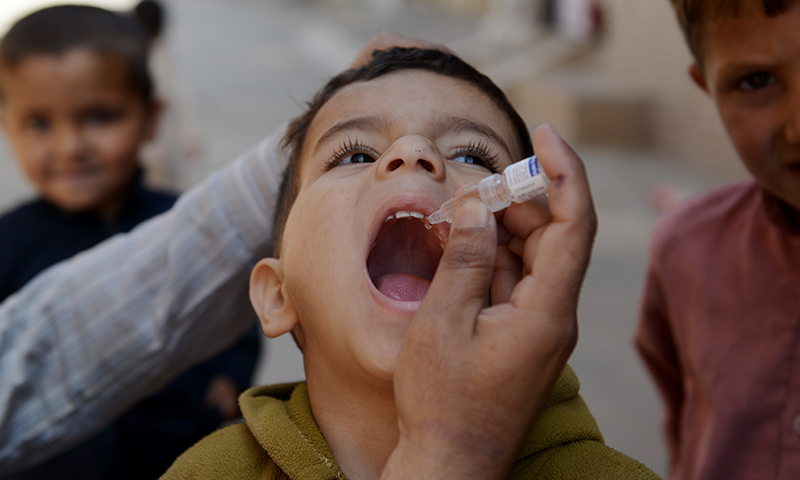PARENTAL refusals continue to be a worrying factor in the drive against polio in Pakistan.
As reported in this paper yesterday, during the last vaccination campaign in Balochistan, parents of over 21,000 children refused to allow their offspring to be inoculated against the crippling disease. Of these, 21pc declined on religious grounds.
This was pointed out during a meeting in Quetta that provincial health officials held with prominent intellectuals and ulema.
With a vaccination drive scheduled to start soon in Balochistan, the religious leaders were asked to play a proactive role, particularly in the high-risk Quetta block, which includes Quetta, Pishin and Killa Abdullah districts.
Significantly, these areas were the most affected by polio last year in the province which recorded around 25 polio cases. The religious leaders present at the meeting reaffirmed their continued support for the polio eradication campaign.
However, the clergy needs to do far more than mouthing platitudes and giving reassurances. It has considerable sway over societal attitudes to education and healthcare, particularly in the country’s more conservative areas.
Vaccination against polio is no exception. In fact, religious sentiment has been especially exploited on this issue by extremists to derail the anti-polio effort, render the work of vaccinators exceedingly dangerous and even justify the murder of around 70 polio workers and members of their security detail since 2012.
Religious leaders can play a vital role to change the narrative and counter those peddling disinformation. However, the endeavour must be sustained and relentless enough to develop critical mass.
In 2013, hard-line cleric Maulana Samiul Haq issued a fatwa urging parents to have their children vaccinated against polio; he later appeared in a photo-op with PTI chief Imran Khan who administered anti-polio drops to his grandson.
Aside from dramatic visuals, such one-stop, flash-in-the-pan efforts achieve little of substance. Pakistan’s clergy could look to the stunning success in polio eradication by India where ulema committees — including representatives of various Muslim sects as well as a doctor — were formed to address parental reservations regarding vaccination, reportedly found most often among Muslim communities.
The strategy is often cited as having played a definitive role in India’s campaign.
Meanwhile, although authorities in Pakistan have even arrested parents/guardians for refusing to get their children inoculated against polio, they could perhaps — as a somewhat less draconian sanction — also consider linking the issuance or renewal of certain documents to parents allowing their children to be vaccinated.


No comments:
Post a Comment